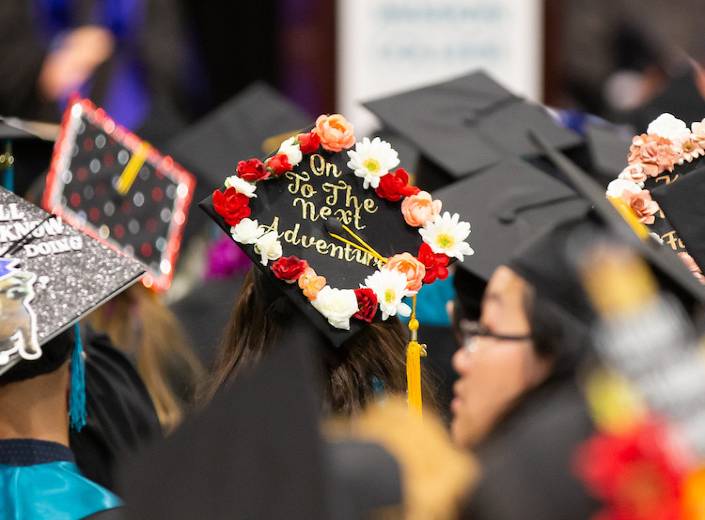Free Career Training
High School, Adult School, and ROP Students
Costs and Fees - Free!
- Dual Enrollment (DE) students pay only the health fee and the rest of the classes are free! DE students are limited to a maximum of three courses and are not to exceed eight units for each term.
- Frequently Asked Questions.

Career Training Programs

How to Apply
Earn College Credit
In today's job market, most careers require education beyond high school. earn college credit toward a certificate or degree which lead to a career, or transfer to a four-year program.
If you are enrolled at a local high school, regional occupational program, or adult school, you can earn college credit from courses taken at your current school. This happens when faculty and administrators from respective schools meet and work out an arrangement called “Articulation.”
- Save money. College is expensive. Earn credits for free!
- Save time. Get a head start on your certificate or degree program.
- Prepare for highly paid and in-demand careers with relevant and cutting-edge career training.
- Gain confidence and a sense of success.
CATEMA
- CATEMA Student StartGuide
- CATEMA Teacher StartGuide: for teachers creating CATEMA courses. This link is for schools with existing 2020-2022 CTE Articulation Agreements.
- CATEMA Q&A
- PowerPoint Training for Teachers
FAQs
Q: How can students request a college transcript?
A: Use the following link to start an electronic transcript request.
Q: Are there instructions to walk students with the portal log in?
A: The Mission College Welcome Center staff can provide log-in assistance.
Q: Question: If I am a senior, but during my freshman year I took an articulated class
but didn't sign up for CATEMA with Mission College, can I still earn the Articulated
Credit?
A: Yes, if you meet the requirements outlined on the CTE Articulation Request form.
Q: Can a high school student take college courses while still in high school?
A: Yes, you can learn more about our dual enrollment program at the following link:
https://old.missioncollege.edu/student_services/outreach/hs-students.html
Q: Is there a list of high school articulated classes?
A: On the Mission College High School Articulation website is a list of courses that
articulate with partner high schools.
Q: Can a high school take an high school articulated class while also taking a dual
enrollment class?
A: Yes
Q: Where can one find classes offered at Mission College that a high school student
can take during the summer?
A: You can find a list of all classes offered on our course schedule.
Q: Can you provide information on the Mission College enrollment process and important
deadlines?
A: Yes ,please visit the following links to view important deadlines and learn what steps to take to apply and enroll.
Q: How can I verify that I’m aligned with the process for earning the articulated
college credit?
A: A great place to start is with the high school teacher, whom you took the articulated
class with. Remember, you will need to have created your CATEMA account.
Q: How will the high school articulated class satisfy degree requirements at another
community college?
A: You will need to speak with your college counselor.
Q: Can my Mission College high school articulated class be used / transferred to a
different community college or a four-year university?
A: You must first complete your CATEMA account with meeting all course requirements
for the for the class to be added to your Mission College transcript. After you will
need to speak a counselor to determine how the receiving college will utilize the
credit(s).
Q: How do the high school college credits help with a degree or certificate at Mission
College?
A: You will need to meet with college counselor to learn how your credit will be counted
towards degree completion.
Q: Do I need to complete a college application to earn the high school college credits?
A: Yes, a Mission College application is required to earn college credit for articulated
classes with the additional completion of setting up your CATEMA account.

